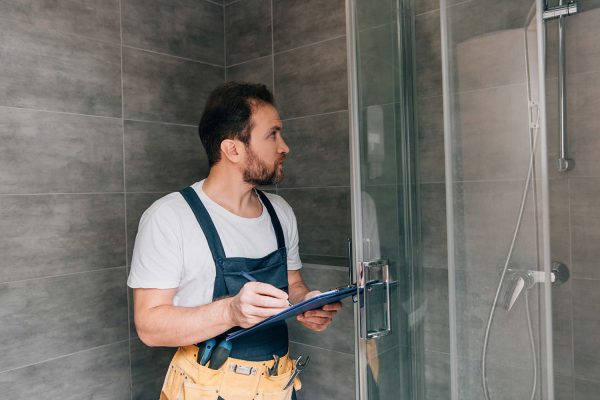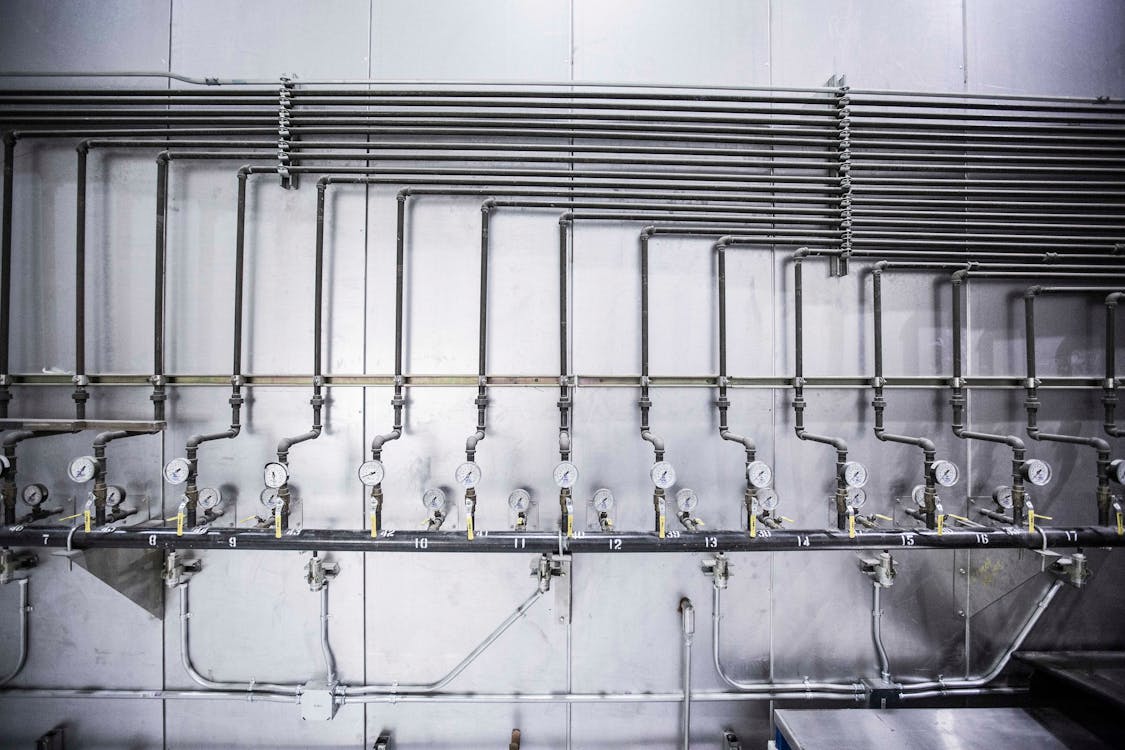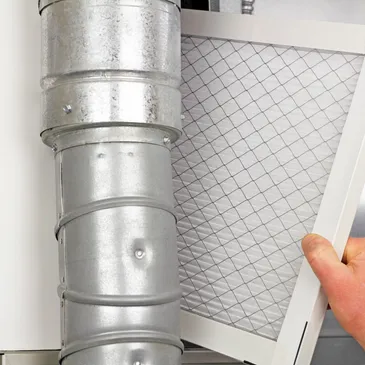
Deciding to replace your water heater can be a big step. You might notice it's not working as well as it used to, or your bills are getting higher. This is a common problem many homeowners face.
One important fact to remember is this: picking an efficient water heater can save you money. It can also provide reliable hot water for your family.
In this article, we'll guide you through how to know when it's time for a new water heater, what types you should consider, and the benefits of upgrading. We aim to make this process easier for you with practical advice and tips.
Keep reading to find out more about making the best choice for your home!
Key Takeaways
- If your water heater is over 10- 15 years old, makes strange noises or your energy bills are going up, it might be time to get a new one. A new water heater can save money and use less energy.
- Think about what kind of water heater fits best for your house. You can choose from demand - type, electric heat pump, or solar water heaters. Each type has its benefits like saving energy and lowering bills.
- Upgrading your water heater means you’ll have better hot water quality and newer safety features. This upgrade can also help the environment by using less power and causing less pollution.
- To keep your current water heater working well, check it regularly for damage or leaks and clean out any sediment.
- When buying a new water heater, look at the energy source it needs and how much money it can save you over time. Some types even offer tax creditsthat make them cheaper in the long run.
Recognizing the Need for a Water Heater Replacement

Is your water heater making strange noises? Are you noticing sediment buildup or rusting on the tank? Has it needed many repairs? Have your energy costs risen? If so, these could be indications that it's time to consider a new water heater.
Also, if your water heater is over 10-15 years old or your hot water needs have changed, it might be time to upgrade.
Indications of a failing water heater
A water heater going bad shows clear signs. You might notice lukewarm water or that your hot showers don't last long. Sometimes, there's no hot water at all. These are big red flags.
Look around the unit too. See any rust on the water? Or maybe corrosion on the tank? Leaks around seals or joints mean trouble. And if you hear rumbling noises, it’s not happy news.
Ignoring these warnings could leave you with cold showers and unwanted damage.
Sediment buildup and similar issues can hurt your system. They make it work harder and cost you more in energy bills. Regular checks help catch anode rod wear or a weak heating element before they fail. Catching these problems keeps the pilot light burning bright and your showers warm.
Increasing energy costs
You noticed signs your water heater is failing. It's time to look at your energy costs. Energy prices are going up. This hits hard when old water heaters use more power.
If you keep seeing higher bills, it may be because your heater is not efficient anymore. ENERGY STAR certified heat pump water heaters can save a lot of money each year if everyone used them.
Old systems make you pay more because they work harder to heat the same amount of water. A new, energy-efficient model could cut those costs down. Imagine saving over $330 every year just by choosing the right heater! By upgrading, you pay less in bills. You also help prevent tons of greenhouse gases from reaching the air we breathe.
It's a smart move for both your wallet and the planet.
Frequency of repairs
Fixing your water heater too often is a red flag. Signs like leaks or strange noises can mean trouble. If repairs become frequent, it's time to think about a new water heater. This could save money and avoid the hassle of constant fixes.
You choose between tankless water heaters and traditional ones. You choose based on your hot water use. Keep in mind, newer models are more energy-efficient. They can cut down your bills and use less power.
So, if you're fixing your old unit a lot, consider this change for better efficiency and savings on repairs. Next up, let's talk about the best moment to upgrade your water system.
Ideal Moment to Consider an Upgrade
Is your water heater over 10-15 years old? Is it struggling to keep up with your household's hot water demand? It may be the ideal time to consider upgrading your water heater.
Age of your current water heater
Your water heater's age is crucial in determining if it needs replacement. A water heater usually lasts 10-20 years. So, if yours has hit the 20-year mark, it might be time for an upgrade.
Even before that, watch for signs of rust. Also, be wary of plumbers refusing to work on older units. These are clear signs that your water heater may be nearing its end.
The standard timeline for replacing a hot water heater is suggested to be around 10-20 years. Plumbers may refuse to work on a water heater that is 20+ years old. They will suggest replacing it to avoid future failures.
Changes in hot water demand
The amount of hot water your household needs can change. This can happen as families grow, habits change, or new appliances are added. For instance, a growing family might require more hot water for showers and baths.
Similarly, if you install a dishwasher or washing machine that uses hot water, it will affect the demand. If multiple people shower at the same time in a house, such as in the morning before school or work, this could also raise demand.
You must consider these changes. They are key to deciding if you should upgrade your water heater.
Hot Water Demand Changes -
Household size - Growing family = increased demand
Benefits of Upgrading Your Water Heater

Upgrading your water heater brings better energy efficiency. It also improves water quality and adds safety features. A new water heater will cut your energy bills. It will also help the environment.
Additionally, the upgraded system ensures consistent hot water for various households
Energy efficiency
You need to save money and cut energy use. Choosing an efficient water heater is crucial. A good water heater can cut your bills. It also reduces the environmental impact of heating water.
Look for a model with an Energy Star label. These are designed to use less energy but still provide plenty of hot water. Also, consider options like solar or heat pump water heaters. They use renewable energy and are more efficient.
Choose an energy-efficient water heater that fits your household's needs. Doing so can save you money on utilities and help the environment.
Improved water quality
Upgrading your water heater can lead to better water quality. Newer models have better features. They reduce sediment and corrosion. This gives you and your family cleaner and healthier water.
A new water heater gives you fresher, purer hot water. It has no potential contaminants. This means peace of mind. Every shower, dish wash, or laundry load is supported by high-quality water.
The next section will reveal more about improving safety features. It's for your upgraded water heater.
Enhanced safety features
If you're considering replacing your water heater, you must focus on safety upgrades. Newer water heaters offer improved safety measures compared to older models.
For example, modern water heaters often come with better thermostat controls. These controls lower the risk of overheating and scalding. This makes the heaters safer for homes with children and the elderly.
Also, better pressure relief valves can control pressure and prevent explosions or leaks. They make your home safer.
Also, new water heater models have innovative leak detection systems. These systems help find and fix leaks quickly. This prevents the leaks from causing big damage.
These features boost the unit's durability. They also greatly reduce accidents from water leaks and damage in your home. Considering these new safety features is vital when choosing a water heater. They will protect your household from potential hazards and bring peace of mind.
Maintenance and Repair of Your Current Water Heater
To keep your current water heater working:
- Check for visible signs of damagelike rust, leaks, or corrosion.
- Regularly flush and clean the tank to remove sediment build-up.
- Inspect and replace corroded or damaged heating elements.
- Test the pressure relief valvefor proper function - it's an important safety feature.
- Insulate hot water pipes to conserve energy and prevent heat loss.
- Maintain the correct temperature settingof 120°F to prevent overheating and save energy.
That's it!
Options for New Water Heaters
When considering new water heaters, you have several options to choose from. Each type comes with its advantages and considerations. It's essential to understand the different options available before making a decision about your new water heater.
Demand-type water heaters
Demand-type water heaters are a solid option when considering an upgrade. They are known for being energy efficient and can help reduce hot water use, saving money in the long run.
Energy Saver provides guidance on selecting the right demand-type water heater, emphasizing factors like fuel type, availability, and cost. These heaters offer a viable solution for those looking to replace or upgrade their current unit.
Some relevant keywords from KEYWORDS used: "energy efficient," "demand-type water heater," "energy saver."
Electric heat pump water heaters
Electric heat pump water heaters use electricity to move heat from one place to another, making the hot water. They can save over $330 per year on electric bills for a household of four.
Aside from cost savings, choosing an ENERGY STAR-certified HPWH can prevent 140 billion pounds of annual greenhouse gas emissions. These systems also qualify for federal tax credits of up to $2,000, and additional financial incentives like rebates are often available.
Upgrading could result in significant environmental benefits and reduced energy costs of almost $12 billion annually if all residential electric water heaters were ENERGY STAR certified.
Solar water heaters
Solar water heaters are an option for lowering energy costs and being environmentally friendly. They use solar energy to heat water, which saves money on utility bills. By considering a solar water heater, homeowners can contribute to the environment by reducing their carbon footprint.
Consider upgrading to a solar water heater for cost savings and environmental benefits. This type of water heater uses the sun's energy to heat your home's hot water supply, providing an efficient and eco-friendly way of meeting your family's needs.
Plus, it helps decrease reliance on conventional energy sources such as gas or electricity, thereby reducing utility expenses over time. Moving forward in this guide, we'll explore other factors you should consider when replacing your current water heater with a new one.
Hot Water Tank Replacement Options and Considerations
When it's time to replace your hot water tank, you have several options to consider. One choice is a demand-type water heater. These are energy efficient and only heat water when you need it, which can save money on energy bills.
Another option is an electric heat pump water heater. This type of water heater uses electricity to move heat from one place to another instead of generating heat directly, making it significantly more energy-efficient.
Additionally, there are solar water heaters that use the sun's energy to heat your water. These can be a great environmentally friendly option for those living in sunny regions. It's important to carefully evaluate the best fit for your home based on factors such as the cost of the unit and projected energy savings over time.
Furthermore, federal tax credits may be available for certain types of high-efficiency units, providing extra incentive for choosing an energy-saving model.
Factors to Consider When Buying a New Water Heater
When buying a new water heater, consider the energy source availability and projected energy savings to make an informed decision. To explore more tips on purchasing the right water heater for you, continue reading!
Energy sources and their availability
Consider the energy source available to your home, like electricity, fuel oil, natural gas, propane, geothermal energy, or solar power. Determine which sources are accessible in your area and weigh their availability against the type of water heater you plan to buy.
This will help you make an informed decision about the most efficient and cost-effective option for your household. Understanding these factors can guide you toward a suitable replacement for your water heater that aligns with both your needs and the resources at hand.
The cost of the water heater and projected energy savings
When considering the cost of a new water heater, it's essential to weigh the initial investment against potential future savings. Upgrading to an ENERGY STAR-certified electric heat pump water heater, for instance, can lead to significant energy cost reductions in the long run.
For a household of four, this could mean saving over $330 annually on electricity bills. Moreover, additional financial incentives such as federal tax credits and rebates are available for these efficient water heaters.
Beyond personal savings, transitioning all residential electric water heaters to ENERGY STAR-certified models has the potential to prevent 140 billion pounds of annual greenhouse gas emissions and yield almost $12 billion in energy cost savings each year.
Conclusion
When considering a water heater replacement, it's crucial to recognize signs such as lukewarm water and increased energy costs. Upgrading at the right time ensures energy efficiency and improved hot water availability.
When selecting a new water heater, consider factors like fuel type, size, and cost to find the best fit for your home. Carefully examining different types of water heaters will help you make an informed decision that optimizes energy savings while meeting your family's hot water needs.
